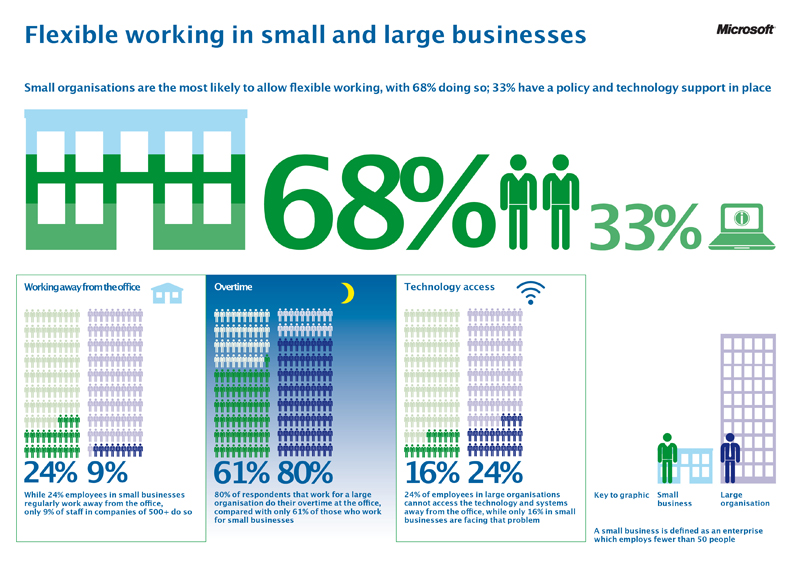Which is more efficient: to have a permanent workplace and rigid schedule or to be able to decide when and where to work? Microsoft Corp has approached Vanson Bourne, a specialist research-led consultancy, which carries out user research within a technology context, with a task to find that out—the study was conducted among 1,500 workers in 15 European countries and provides a number valuable insights into the problem of creating ‘a new world of work.’
According to the study (download it here), the bigger the organization is, the more reluctant it is to provide its staff with an opportunity to work from away from the office. In other words, larger and medium-sized businesses don’t let their employees increase productiveness by working in the place they find most comfortable, despite 56% of respondents confess that work better away from the office. Still, bigger companies should better change their strategy since 4 in 10 say that “the option of flexible work would influence their decision to accept a new job”.
There’re two things that influence the employer’s decision to let the staff work away from the office: technology and trust. The managers must be sure that the employees are using the right technology, which enables them to achieve the best results in what they are working on. Plus, the leader teams are unsure if such an ‘unconventional’ method of work can help the stuff be more productive. “One-quarter of employees in large organizations cannot access the technology and systems away from the office, while only 16% in small businesses face that problem,” the survey stated. Technology leaders launch a bunch of programs to prove that this way of employment can be effective: for instance, Microsoft launched its Innovation Center for Productivity and introduced Microsoft UK’s Hybrid Organisation, while Philips kicked off the Workplace Innovation initiative.
“Organizations that will be successful in the future are those that break down the barriers between people, workplace and technology and establish a culture of trust,” said Klaus Holse Andersen, vice president of Western Europe for Microsoft. “This means empowering people by providing them with a workplace that facilitates flexibility, self-direction and engagement and enabling them with the technology and tools that help them to be productive wherever they are. To bring the vision of a new world of work to life, leadership teams need to establish a culture that is focused on what individuals achieve, rather than how long they spend in the office.”


